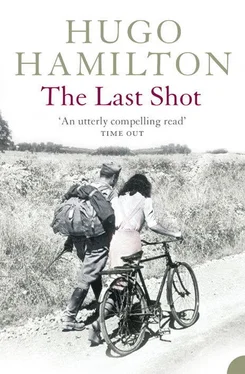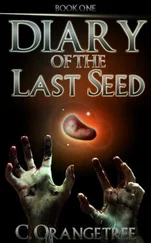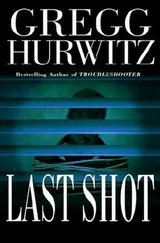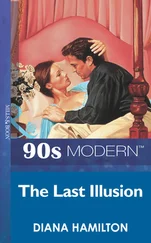I don’t know why I attract so many businessmen on these train journeys. On my way to Münster for the funeral, I got talking to another man in a suit, who might equally have been going to a funeral had he not told me he was going to a meeting in Osnabrück. He was in cosmetics. They were branching into the East in a big way. That was what his meeting was going to be about. He had been chosen to take on the East.
‘It’s wonderful, isn’t it. The Berlin Wall down. German unity. All this freedom. Europe is a new world.’
‘Yes,’ I said. I could hardly say otherwise, on the Intercity.
‘It’s wonderful,’ he kept saying. Telling me where his company was planning its strategy. He was open about his joy. He went further, perhaps, than he should have gone, telling me trade secrets, things you would say only to a friend or a complete stranger. I could have been a commercial spy. The great new spy stories are all going to shift from political espionage into commercial espionage. New le Carrés. Maybe the famous Glienecke Bridge in Berlin will now be used to swap managers, planners or chemical engineers under cover of darkness.
This businessman was so enthusiastic, he was almost drunk on progress. He talked about Berlin with great excitement.
‘Imagine,’ he said. ‘All the people who own property beside the Wall. Some of the worst districts up to now. And overnight…they became millionaires. And those people in the East, living in wooden houses along the outer border of West Berlin, their wooden shacks become priceless overnight, holiday homes. God knows what.’
He invited me for coffee in the Speisewagen, where we sat at the table opposite each other. The white tablecloth bore the Intercity mark. Then he let me in on a personal secret. He wasn’t going to stay with his firm. He was going to make it on his own. It was the big chance.
‘Oh no. I’m not going to let it go by,’ he said. ‘My place is going to be Prague. Prague is the big one. Wait till you see.’
He drew back. He wasn’t going to tell me what his scheme was. What exact business he had. in mind. But he said he had already been there five times since the Velvet Revolution. He was learning Czech like a maniac. He was waiting for the right moment.
Münster was pouring rain. I got a taxi and remembered how Anke said it was one of the rainiest towns in Germany. I went straight to the church. I was there to see Anke arriving with Jürgen, surrounded by relatives. I had met Anke’s mother before and I also recognized Jürgen’s parents. Anke seemed calm, less solemn than I had imagined, though she wore a black dress. Must have bought it for the day. I’d never seen it before.
The size of the small coffin got to everyone. People remarked on it with tragic expressions. I saw Anke and Jürgen both crying together; he was supporting her. It was the way I imagined Anke; as though she was only completely perfect when she was crying. It seemed as though she was crying for everyone.
I could think of nothing but Alexander. I thought about his fringe, about his laugh, the way he enjoyed the simplest of things like the sound of a spoon ringing in a cup. I thought of the time he ran into the living-room with the plunger; Jürgen first wanted to take it off him, then he let him have it, then he helped him stick it to the window and the three of us sat back and laughed helplessly at it.
Outside the church, the weather was very bad. The rain had let up a little, but it was windy and cold. There was no time to stand around for extended condolences after the service. Anke came over to me briefly and said, ‘Thank you for coming.’ I understood. What else could she say? But I’ve never felt as distanced from anyone as I did from Anke just then. I tried to say something back. What do you say? I found nothing. And anyhow, she was quickly whisked away into the black limousine. There were too many limousines. It looked like there was one for each mourner, almost.
I was offered a lift with one of the many relatives. Jürgen’s uncle, as it turned out. The car I got into was packed. The occupants spoke about Anke. They said she was a courageous woman. They kept saying how much they admired the couple for what they had done. They were not afraid of life. Everyone hoped life would treat them better now. There was an endless stream of cars; some relatives, most of them Jürgen’s patients or associates. The practice was closed for the day. Large notices were placed in the papers marking the death of their son.
I almost envied Jürgen and Anke sitting in the first car together, all alone, like a black wedding. This was Anke’s real wedding, I thought. A wedding of tears.
The cortège moved slowly past their house, carrying Alexander for the last time past his home, past his toys, his story books, his bed, his special mug, his spinning top. It seemed strange to be travelling so slowly on that street; some of the neighbours coming out on to the pavement to bless themselves and lower their heads in respect. It felt ridiculous: I could have walked faster. The pace of a funeral. There are some things you can’t rush. Sometimes you are dragged past a set of images or symbols so slowly, you feel trapped. Unable to move.
At the crematorium, there was another scramble for shelter. It was lashing. Anke was rushed inside, somebody protecting her from the rain with a jacket. Another man made a hood out of his own jacket. I saw a woman holding a handbag up over her head. Everywhere, logistical conversations broke out; how to get from the car to the door of the crematorium in the fastest time. Anke was wet anyway. Her short hair was marked with blobs of rain. Her skin was pale. Her lips were red.
Alexander disappeared. It was very quiet. Somehow it went faster than I expected. Afterwards, I got to speak to Jürgen. He put his arm around me and said, ‘I’m glad you came. Above all people, I’m glad you could make it.’
I had another word with Anke too. She put her arms around me for a moment. It was a funeral hug. She seemed happier than I expected. It was as though all the mourners were desperately trying to keep her from being happy ever again. Anke said she was happy that I came. It made her feel good.
‘I’ll miss you,’ she said. ‘I’ll write to you. I’ll tell you everything.’
Before I was able to say a word, she was taken away. She was introduced to other relatives, more distant relatives. Everybody wanted to say a few words to the bereaved mother. Everybody wanted to belong to such a beautiful death, such a beautiful sad mother. Such remarkable sadness. She looked spectacular in grief.
This was Anke’s real wedding. This was where I would have to say goodbye.
Nothing could have prepared Bertha and Franz for Nuremberg. They could see that the city had been levelled by the last months of the war. It was a wrecked city. The spires and the outline of buildings, which would have been familiar to Franz even from that distance, were razed. The character of Nuremberg had disappeared.
The roads leading to Nuremberg were busier, lined with people on the move. On the outskirts, they came to an encampment of American troops where everybody was being stopped at a roadblock. Bertha saw the Stars and Stripes flying over the camp and thought in a way that she was already in America. For her, as for most of the people returning home, they were friendly colours. The colours of success and liberty. But Franz was certain there would be questions. They would have to identify themselves and say where they had come from.
‘Say nothing,’ he said to Bertha. ‘Whatever you do, say nothing about the shooting. Say nothing at all about that incident.’
They put together a hasty alibi before they merged with the traffic going towards the checkpoint. It was clear that Franz had belonged to the Wehrmacht. He still wore the boots. He wasn’t denying anything.
Читать дальше
Конец ознакомительного отрывка
Купить книгу












